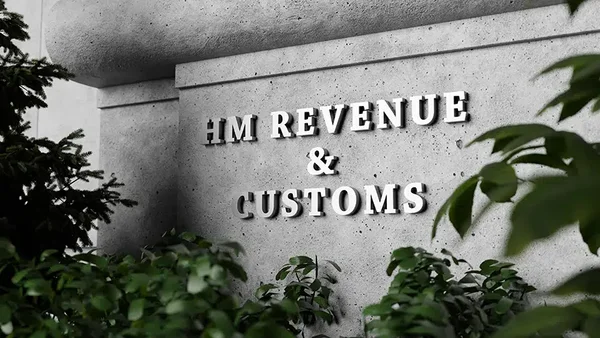Let’s Get Started...
Gift Aid might sound like a small perk, but it can stretch every pound you donate. Whether you’re giving a one-off £20 or making regular monthly donations, knowing how the scheme works means more money reaches your chosen cause, and you may even trim your own tax bill.
From the simple 25% top-up charities can claim to the extra relief higher-rate taxpayers can get back, this guide walks you through exactly how Gift Aid boosts a £20 donation in 2024/25.
When you donate to charity, Gift Aid can make your generosity go even further. It’s a brilliant scheme that allows UK charities to claim back the tax you’ve already paid on your donation. Platforms like the Charities Aid Foundation can help facilitate Gift Aid donations and make the process easier for donors.
Pie tax makes tracking charitable donations and Gift Aid claims simple with our dedicated donations tracker. Or if you’re just here to get to grips with it all, let’s break it down!

What exactly is Gift Aid?
Gift Aid is a tax relief that allows UK charities to claim back the basic rate tax you’ve already paid on your donation. This means they can claim an extra 25p for every £1 you give.
Gift Aid means charities can receive extra funds from the government, increasing the impact of each donation.
You don’t need to do anything complicated to make it work. Just tick a box confirming you’re a UK taxpayer, and the charity handles the rest.
The beauty of Gift Aid is that it costs you absolutely nothing extra. Yet it makes a massive difference to the charity you’re supporting.
How much Gift Aid will the charity get on my £20 donation?
On your £20 donation, the charity can claim exactly £5 in Gift Aid. This turns your £20 into £25 for the charity – a lovely 25% boost!
The maths is straightforward: £20 × 25% = £5 in Gift Aid. This works because the £20 you donated is treated as if you’ve already paid basic rate tax on it.
Your £20 represents 80% of the pre-tax amount, with the remaining 20% being the tax the charity can reclaim. So your donation is actually worth £25 before tax.
The charity can claim that missing £5 from HMRC. I remember being amazed when I first learned this – my small monthly donation to a local animal shelter was generating an extra £60 per year without any extra cost to me!
Donors who use Gift Aid help charities receive more funds at no extra cost, making their contributions go even further.
Does Gift Aid affect my tax bill?
If you’re a basic rate taxpayer (paying 20% income tax), there’s no additional effect on your tax bill. You’ve already paid the tax that the charity is reclaiming.
However, if you’re a higher rate taxpayer (40%), you can actually claim back some tax yourself. For a £20 donation, you could claim back about £5 in tax relief. Higher and additional rate taxpayers can claim tax relief on their donations by including them in their tax return.
For additional rate taxpayers (45%), you could claim back about £6.25 on that same £20 donation. These claims are made through your Self Assessment tax return or by contacting HMRC directly.

Higher Rate Taxpayers
If you’re a higher rate taxpayer, Gift Aid offers you an extra tax benefit on top of helping your chosen charity.
While charities can only claim back the basic rate of tax (20%) on your donation, you pay a higher rate of income tax, either 40% or 45%.
This means you can personally claim back the difference between the basic rate and your higher rate through your tax return.
For example, if you donate £100, the charity claims £25 in Gift Aid, making your donation worth £125 to them. As a higher rate taxpayer, you can claim back an additional £25 (the difference between the 40% and 20% rates on £125) as tax relief.
This effectively reduces the net cost of your donation to £75. To claim this extra relief, simply include your Gift Aid donations on your Self Assessment tax return. It’s a great way to make your giving go further, both for you and the charity.
What do I need to do to make Gift Aid work?
You need to make a Gift Aid declaration for the charity to claim the extra £5 on your £20 donation. This means you need to fill out and sign a Gift Aid declaration form, confirming you’re a UK taxpayer and have paid enough tax.
Most charities make completing and submitting Gift Aid declaration forms super easy with a simple tick box on their donation forms, whether you’re donating online or on paper. Make sure the form is completed accurately to ensure the charity can claim Gift Aid.
Remember, you must have paid enough tax to cover the Gift Aid amount. For a £20 donation, you need to have paid at least £5 in tax that year.
Events and Sponsorship
Gift Aid can also apply to donations made through events and sponsorships, such as charity runs, walks, or cycles. If you’re taking part in a sponsored event and your supporters are UK taxpayers, they can make a Gift Aid declaration to allow the charity to claim Gift Aid on their donations.
It’s important to note that only genuine donations qualify, if a supporter receives a significant benefit in return (like a meal or a ticket), their payment may not be eligible for Gift Aid. Charities will usually provide clear guidance on what counts as an eligible donation for Gift Aid purposes.
When making a Gift Aid declaration for event sponsorship, supporters should include the event name and date, along with their details and confirmation of their taxpayer status. This ensures the charity can claim the maximum benefit from every eligible donation.

When should I not use Gift Aid?
You must pay enough tax and have sufficient tax paid in the current year to cover the Gift Aid being reclaimed. For a £20 donation, you need to have paid at least £5 in tax.
If you did not pay tax in previous tax years, you should inform the charity to avoid improper Gift Aid claims for those years.
Avoid using Gift Aid when donating on someone else’s behalf. This includes collecting money from friends for a sponsored event.
Gift Aid isn’t suitable if you’re receiving substantial benefits in return for your donation. These must stay within what’s permitted under the rules.
If your tax status changes and you stop paying enough tax in any of the relevant tax years, let your charities know. Your eligibility to claim Gift Aid may change depending on your tax paid in different tax years, and they’ll need to stop claiming Gift Aid on your donations.
Final Thoughts
Gift Aid is a fantastic way to boost your charitable giving without costing you a penny extra. That £5 extra on your £20 donation can make a real difference to causes you care about.
Higher and additional rate taxpayers get an even better deal. They can claim back some personal tax relief too, making giving even more efficient.
Just make sure you've paid enough tax to cover the Gift Aid claim. Keep records of your donations if you need to claim additional relief.
Pie tax: Simplifying how much is gift aid on £20 Tax
Keeping track of your Gift Aid donations shouldn't be a headache. The UK's first personal tax app makes it simple to monitor exactly how much extra your charities are getting.
With Pie tax, you can instantly see that your £20 donation generates £5 in Gift Aid. You'll also see any additional tax relief you might be entitled to as a higher rate taxpayer.
Our charitable giving tracker automatically calculates all the figures for you. This makes it easy to keep records for your tax return and ensures you never miss out on tax relief.
Fancy seeing how Pie tax could make your charitable giving more transparent? Take a look at our app to see how we're making tax simple.











